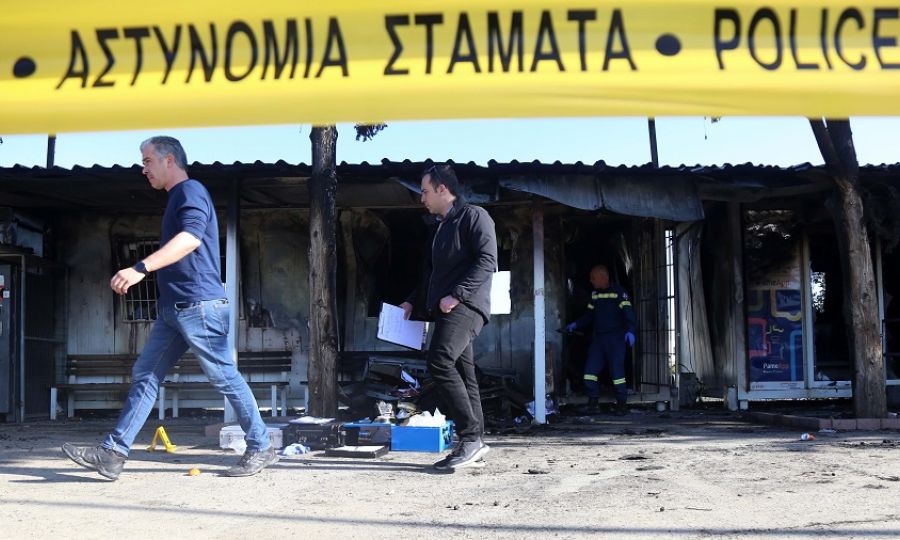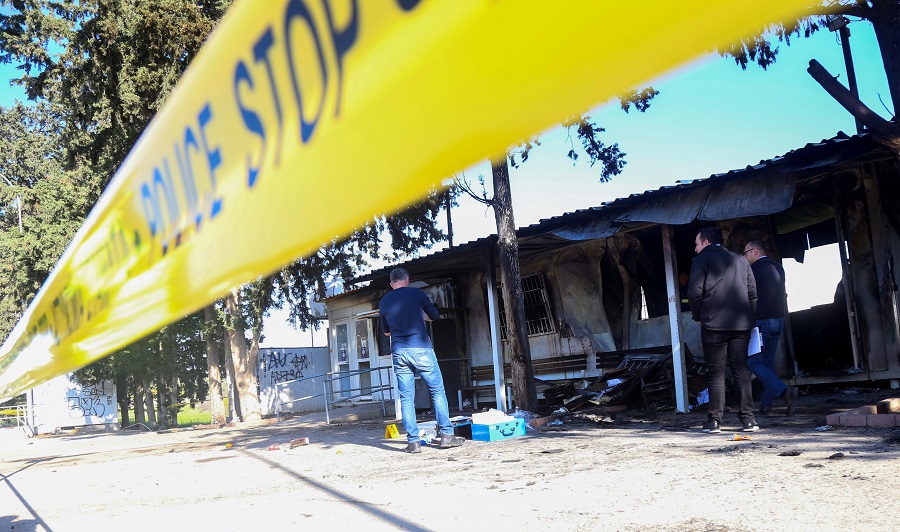

Apostolos Tomaras
Following the riots inside and outside the Eleftheria stadium, the government places the fight against violence in sports venues squarely on the shoulders of the police. The cabinet's decision on Wednesday is more consistent with the logic of combatting these hooligans and less consistent with a preventive strategy. Five of the nine measures announced by the Minister of Justice concern the Police who can be seen as becoming the spearhead in eradicating phenomena such as the one at the Eleftheria Stadium. What is striking about the measures chosen is the clubs' almost non-existent involvement in identifying the small number of 'fans' who cause the incidents. This is despite the President's public statements the day before, in which he called on everyone to take responsibility. In addition to the measures concerning the "new" role of police in sports venues, the government has gone on to strengthen existing measures, some of which had remained on paper.
Hindering rioters
The police have a clear role in sports venue monitoring, which is sometimes reinforced.
As a result, the government has not finally tightened the leash on those clubs whose supporters are rioters regularly. Warnings about empty seats and a ban on fans traveling to away games remained just that: warnings. The burden of decision falls on the police when it comes to fans attending away games. However, everything will depend on the Legal Service, which will be consulted on an amendment to the legislation that would give the Police the authority to decide which matches will prohibit fan movement.
Police will have the authority
The Police are expected to have a lot of work ahead of them in the coming period based on the measures decided. The provision that the Police will have the final say on the presence of team fans in away games is regarded as the most important of the five measures that concern it. If and when the Legal Service approves, the Police's recommendation to the home Federation (CMP) to prohibit fan movement will become legally binding. In the event of further incidents, the Police will have the authority to recommend that matches be played behind closed doors, with a match ban as a last resort. Until now, Police recommendations could be ignored, as was the case after the incidents at the Tsirio stadium, where the CMP did not even respond to the Police's suggestion of a ban on fan movement, according to police sources.
Police presence
The measures relating to the police do not indicate whether police presence inside sports venues is returning. However, the role of the police in sports venue checks is being expanded in some cases. Such as the creation and operation of a permanent anti-bullying unit within the Motorized Direct Action Unit (MAD) tasked solely with policing sports matches or other high-risk events. The cabinet decided to increase Police controls and surveillance of organized supporters' movements without specifying the scope of the Police's action, given that the Police have not been absent in the past.
Checks
The ministerial decisions place a focus on controls, with the Police returning to the areas where controls were previously implemented at the entrances to sporting venues. In this spirit, the cabinet decided to increase the physical control of fans in order for police to detect and confiscate illegal and dangerous items. It is necessary to amend the relevant laws to permit drug and alcohol testing in order to fully enforce the ban on people who are inebriated or under the influence of drugs from entering sporting events and the areas around them. The decision by the police to control the application of the fan card in sports venues following an amendment to the relevant legislation is also considered significant. The fan card is also linked to stricter timetables for the installation of closed-circuit television at all stadiums where the legal standards are currently not being met. As a result, the cabinet has decided to amend the legislation so that, regardless of capacity, closed-circuit television will be installed in all stadiums where first-class matches are played within specific timeframes to be defined in consultation with all stakeholders.
The rioters and the clubs
For rioters, the cabinet limited itself only to increasing the penalty of exclusion from sports venues for up to ten (10) years. A provision that also requires amendment of the relevant legislation. For clubs, the only provision in the government decisions is a general reference to a reassessment of financial or other assistance from the state to clubs.
[This article was translated from its Greek original]












![A man rides a bicycle past a Civil Defense vehicle in Akrotiri village, located near RAF Akrotiri, a British sovereign base in Cyprus that was hit by a drone early Monday. [Yiannis Kourtoglou/Reuters]](assets/modules/wnp/articles/202603/27746/images/s_akrotiri_village.jpg)


















